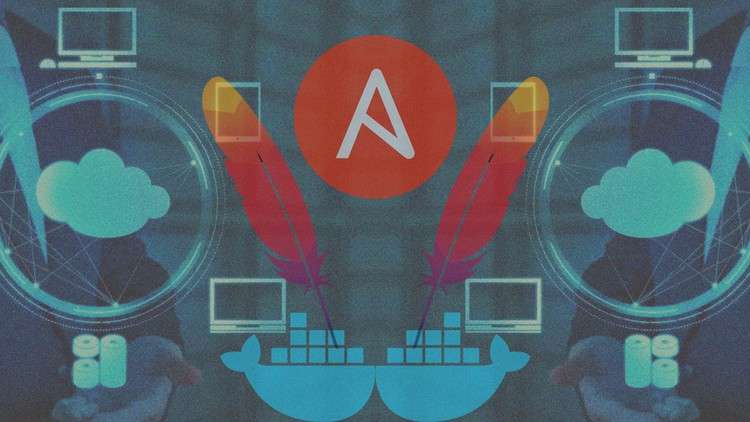
Apache Web Server PHP Docker Deployment Ansible YAML Infrastructure as Code (IaC) Azure Cloud VPS Server Install Config
What you will learn
What is Ansible?
Why using Ansible?
What is IaC and Ansible YAML?
What is Docker and What are the Advantages?
Deploying Infrastructure using Ansible on Cloud Servers on Docker
What is Apache and PHP and Why Deploy on Docker?
Apache and PHP Deployment using Docker and Ansible – Lab
Ansible Installation Lab
Ansible Configuration Lab – Test and Verification
Docker Installation and Deployment on Webservers using Ansible YAML IaC
Docker Container Deployment – Apache PHP Web and Redis Deploy using Ansible IaC – Automation Lab
Apache PHP Redis Deployment using Docker and Ansible IaC Automation – Testing on 3 More Cloud VMs
Description
Embark on a comprehensive journey with the Udemy course “Apache + PHP + Docker Deployment – Ansible YAML Infrastructure as Code,” designed to equip you with the essential skills for efficient infrastructure management. Delve into the world of Ansible, exploring its significance and the fundamentals of Infrastructure as Code (IaC) through Ansible YAML. Uncover the power of Docker and its advantages in deploying infrastructure on cloud servers with Ansible. Gain hands-on experience in deploying Apache and PHP seamlessly on Docker through detailed lab requirements and practical exercises. Master Ansible installation, configuration, and verification labs, ensuring a solid foundation for automation. Explore Docker installation and deployment on webservers using Ansible YAML IaC, and witness the magic of automation with Docker container deployment labs for Apache, PHP, and Redis. Test your skills on multiple cloud VMs, and discover how to perform Ansible IaC automation tests on personal computers using VMware Player. Elevate your expertise in the dynamic trio of Apache, PHP, and Docker, and revolutionize your infrastructure deployment processes with Ansible YAML IaC automation.
Ansible is a powerful open-source automation tool that facilitates Infrastructure as Code (IaC) by using YAML (Yet Another Markup Language) syntax for defining configurations. In Ansible, automation tasks are expressed in simple, human-readable YAML files, making it accessible to both developers and system administrators. This declarative approach allows users to describe the desired state of their infrastructure, specifying configurations and tasks needed to achieve that state. Ansible operates agentlessly, relying on SSH or WinRM to connect to remote machines, making it lightweight and easy to deploy. YAML files in Ansible define playbooks, which consist of tasks and roles to be executed on target hosts. This IaC paradigm enables consistent and reproducible infrastructure deployments, streamlining the management of servers, networks, and applications. Overall, Ansible’s YAML-based automation simplifies the orchestration and configuration of complex IT environments, enhancing efficiency and reducing manual intervention.
Content